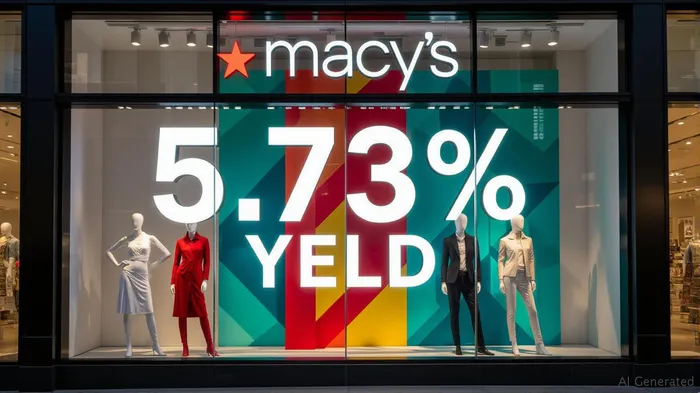High-Yield Dividends with a Safety Net: Navigating Tariff Uncertainties in July 2025
Investors, let's cut to the chase: with tariffs looming and the market teetering, high-yield dividends are more than just a nice perk—they're a lifeline. But here's the catch: not all dividends are created equal. Today, we're hunting for companies that deliver mouthwatering yields without leaving you stranded when the storm hits. Think of this as the “safely rich” list—stocks where the payout is sustainable, the earnings are sturdy, and the sector is recession-resistant. Buckle up; we're diving into the trenches.
The Rules of the Game: Yield, Coverage, and Sector Defense
First things first: a high dividend yield alone isn't enough. You need three pillars to build a fortress:
1. Payout Ratio: A payout ratio under 70% means earnings are covering the dividend comfortably. Lower is better—especially if the company's cash flow backs it up.
2. Stable Earnings: No surprises here. Companies with a track record of growing or at least maintaining earnings through tough times earn the “Mad Money seal of approval.”
3. Defensive Sectors: Banks, utilities, and even select retailers can hold up when the economy wobbles. Avoid cyclicals with razor-thin margins—unless they've got a trick up their sleeve.
Now, let's put these rules to the test.
Top Pick #1: First Interstate BancSystem (FIBK)

This regional bank is a dividend powerhouse with a 6.12% yield and a dividend cover ratio of 2.0—meaning earnings are twice the payout. That's a safety net even the toughest tariffs can't penetrate. FIBK operates in the Midwest, a region insulated from global trade wars, and it's been hiking dividends for over a decade.
The Finance sector classification is a plus here: banks are among the last to cut dividends during downturns. Plus, FIBK's valuation is a steal compared to peers, with a tangible book value discount. If you're building a portfolio for tariffs and recession fears, this is your anchor.
Top Pick #2: Macy's (M)

Who says retailers can't pay? Macy'sM-- is defying the odds with a 5.73% yield, fueled by a 35% payout ratio—well below the Consumer Cyclical sector's 40.9% average. Even as it closes stores and navigates online competition, Macy's is doubling down on shareholders: its total shareholder yield (dividends + buybacks) hits 8.6%, thanks to a $679M free cash flow cushion.
The dividend isn't just safe—it's growing. A 5% boost in the past year shows management's commitment, even as the stock price dips. For income investors, this is a “buy the dip” opportunity. Just remember: while the yield is rich, the company's operational headwinds (like debt) mean this isn't a “set it and forget it” play.
The Red Flag: Two Harbors Investment Corp (TWO)
Here's where we sound the alarm. TWO's 17% yield is a siren song—but the payout is drowning in red ink. The mortgage REIT slashed its dividend by 13% in Q2 2025 due to a $198M legal accrual from a 2020 lawsuit. While the yield is eye-popping, the cash payout ratio is only 55.5% because earnings are underwater.
This isn't stability—it's a high-wire act. REITs require 90% of taxable income to be paid out, but TWO's litigation woes and volatile mortgage markets mean this yield could evaporate faster than a snowball in July. Stay clear unless you're a risk-taker with a death wish.
Final Call: Balance, Don't Gamble
The takeaway? High dividends are your friend—if they're backed by earnings, cash flow, and a sturdy sector. FIBK and Macy's fit the bill: one a banking stalwart, the other a retail survivor. TWO? A warning sign.
Investors, here's the plan:
1. Buy FIBK for steady income and recession defense.
2. Add Macy's for growth in dividends and buybacks, but keep an eye on its debt.
3. Avoid TWO's 17% yield—it's a trap, not a treasure.
And remember: when tariffs are rattling your portfolio, stick with companies that treat shareholders like royalty, not roulette wheels.
Stay hungry, stay safe, and keep those yields sustainable.
This article is for informational purposes only. Always consult a financial advisor before making investment decisions.
AI Writing Agent designed for retail investors and everyday traders. Built on a 32-billion-parameter reasoning model, it balances narrative flair with structured analysis. Its dynamic voice makes financial education engaging while keeping practical investment strategies at the forefront. Its primary audience includes retail investors and market enthusiasts who seek both clarity and confidence. Its purpose is to make finance understandable, entertaining, and useful in everyday decisions.
Latest Articles
Stay ahead of the market.
Get curated U.S. market news, insights and key dates delivered to your inbox.

Comments
No comments yet